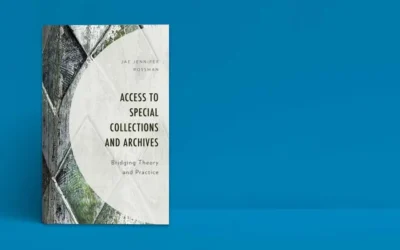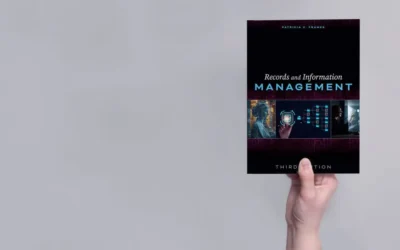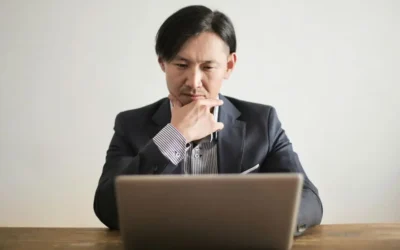Earning the Right to Give Advice

Stephen Abram
As information professionals we are often asked to give our advice and our professional opinion on a number of issues and projects. Sometimes it is difficult to offer guidance confidently, yet it is our obligation to do so. In this post I’ll offer my thoughts on why and how to begin.
Librarians recommend sources and databases. We advise on research processes. We comment on the quality and veracity of authors, serials, brands, sources, webpages and blogs. If we’re doing it right, we are sought out and asked for our considered (and professional) opinions. If we’re not sought after, we can feel empowered to interject our advice and opinions since we have an informed perspective. We can start out in a number of ways:
- “In my opinion…”
- “My experience tells me that…”
- “My best advice is…”
- “My considered opinion is…”
- “If it was my choice, I would…”
- “My research tells me that…”
Professionals start sentences with phrases like those. Professionals are respected for their opinions because they have the education and experience to make better and informed judgments. They are thoughtful, authoritative, respected and trusted. All of these qualities can be lost in an instant with our users if we play loose with our opinions. It’s a quandary we face. Some librarians and information professionals seem to still struggle with having confidence about their opinions. That’s sad. We must, however, take a few risks to position ourselves better in the knowledge-based economy.
As technology and content choices are an increasing dimension of our users’ life decisions, and information becomes an even more essential part of our enterprises’ DNA and decision-making workflows, we, as our organizations’ information experts, must step up to the plate and offer professional opinions. The fact that we can more strongly position ourselves for our expertise —as opposed to only our collections and databases—makes this a particularly exciting time in our professional lives. Expertise doesn’t just lie in our information skills. It’s also about the role we play in advising our enterprises about content, technology and which are the best choices for our environments and our users’ needs.
Are we ready? I don’t know. I have had many conversations about this topic in the past few years and followed many conversations on discussion lists, conference panels, blogs, etc. I worry when I see statements that some new technologies have no place in libraries. I’ve seen and heard folks make blanket statements about this. I heard these sort of blanket opinions, expressed by working information professionals, from the early days of AltaVista vs. online, and I’m seeing similar opinions being expressed about social networking technologies and instant messaging communication tools. I am not truly appalled until I ask them what experience they have with these technologies. Too often, (actually, the majority of the time) they have little to no actual experience with the technology they are criticizing. It’s just an opinion or gut feeling. I try not to let my jaw drop. So, jaw firmly clamped, I ask why they feel as they do. Often it’s they are driven by media hype, experience in observing a few children, or some other information process that resembles hearsay more than research. It’s not what I would define as an “informed opinion.”
(On a slight tangent, I often hear many colleagues comment on the quality of library schools and their graduates. Again, I ask when they were last there, saw a class or met a student. Too often their opinions are informed by their own experiences decades ago and commonly, they’ve rarely returned or even seen a range of library education programs. Again, I find too often that they have uninformed opinions but still feel very strongly that they are right. That’s interesting and sad. Having actually visited dozens of schools, taught in a few programs and met so many student CLA, ALA and SLA members, I can only say I am impressed. I trust my own experiences. I trust the research more—like the 8Rs or IMLS studies.)
Experience-based opinions
If you’re a regular reader of my posts, you’ll know that I am a big fan of experience-based learning. I also believe that experience trumps book learning every time, although reading is a fundamental and essential part of the process. If we want to be perceived as thoughtful, authoritative, respected and trusted, we need to have the bona fides. That means we should have at least played with many of the most interesting and leading edge new technologies. We don’t need to adopt them all into our regular work lives—not at all. We don’t need to bet the enterprise on transient or in-development technologies either. We just need to have a better informed opinion than our users and clients as well as our host institutions and communities. They have a right to get the best opinion possible from their information professionals. So, here are a few areas I think that we need to be expert in, which are great places to start positioning ourselves as experts. (We could even play with each and blog about it, or offer our balanced insights and informed opinions on our websites, in our newsletters or through our library intranets.) Hosting “tech petting zoos” is another way of positioning our professional curiosity.
Let’s think about how we inform our opinions in the best way, for the critical areas on which we have a perspective.
Content
Our users are challenged by making important decisions about what content they should choose and how they should search and filter it. This is especially highlighted in the fake news era. Many falsely think that the web might be enough and they themselves can’t be fooled. Arrghhh! Everyone, including myself, can be fooled, at least temporarily. We need to clarify for users the difference between advertising-based search engine ranking and non-partisan library results. We make great collection development choices for our enterprises—and still free web search engines have major mindshare, even with target groups we have special access to. We need to get more comfortable in presenting and positioning best choices in both print and e-content (including all media). We, as librarians, need to make sure that we’re viewed as format and container agnostic, and best positioned to give advice on podcasts, wikis, streaming media, blog searches, YouTube, Technorati, Google, iTunes, and more. This space is emerging as one of the most exciting places to play with content right now. We need to get much better at federated search display and visualization.
Instant Messaging
Conversations are one very effective way to transfer information and knowledge. Telephone conversations and our in-person reference interviews and research conversations are excellent examples of how we have great competencies here. In today’s world, text messaging is challenging the superiority of actual voice calls. In the PC/Mac world, instant messaging is the norm for under 40s. IM clients like AOL, MSN, Yahoo!, and WhatsApp are must-haves for people who give advice and service. This evolution into what virtual reference ultimately will be is exciting. Are we ready to use these channels and add voice, links and video? Let alone leveraging the presence of Twitter in our communities. It’s easy to play with these tools with friends and colleagues just to learn and inform our opinions.
Gaming
I am surprised at the vehemence of opinions among adults, and fellow librarians, about gaming. Even with the average gamer now running about 32 years old and being female, many folks still see this technology as merely teen boys’ play. It appears that the world can be divided into those who ‘get’ gaming and those who despise it. One recent SLA discussion thread covered gaming, and several expressed the opinion that gaming and virtual worlds have no role ever in special libraries, but maybe games could find a place in public libraries. I was distressed at the lack of understanding here. Gaming is one of the largest revenue generators in the publishing space. That alone makes it worthy of further investigation. Games have found great success in the training and development arena. If your library supports employees, there may be a role here for your skills in ensuring identification and access to these collections. Games are a major key to the training and development of the military worldwide, with many of the major consumer titles developed for military purposes first. Many advertisers are working on understanding how to add game play to their marketing strategies. The point with gaming and libraries is to understand it enough to advise and imagine a potential role. Imagination is the key. Closed minds aren’t.
Virtual Worlds
Virtual world ecologies like Second Life (which still exists as a profitable company) are often confused with gaming environments. Virtual worlds are still just in their earliest days, and those who ‘played’ in Second Life were readier to evaluate the tools that followed. The role of GIS and GPS in these worked along with augmented reality, and virtual reality is coming into commercialization very quickly—just think Pokémon GO. Yes, some of the original brands (AltaVista) are not with us anymore. The trend did inexorably develop. I’d hate to see us make the same mistake again. Will Second Life be with us five years from now? Maybe, maybe not. Will virtual worlds? Indubitably.
Social Networking Redux
It has to be acknowledged that social media is a two-edged sword. These sites/tools are great influencers and enable civic conversations around the world. These conversations have proved to be both a force for good and a force for evil and fake news. That said, a private social group like Yammer is different, since administrators can control the conversants and the quality and diversity of the group online. Our library voice needs to be right in there. A social media strategy for improving our brand, our presence and our reputation is only limited by our own individual and collective imaginations.
Workflow Tools as Disrupters
Our users are looking for the tools that let them be more effective in a mobile, nomadic workplace. Are we ready to advise? Are we offering the tools that help research workflows? Tools like Zotero, an Internet scrapbooking software, are great options to complement our traditional offerings of online citation tools to make the creation of footnotes and bibliographies easier. It’s also interesting to watch the building up of Google’s offerings to compete with MS Office. Google Docs and Spreadsheets, Google Calendar, Gmail, and all the rest are now viable options. Google Education is encroaching on a number of ‘disruptable’ spaces. Services like Zoho allow you to use web based e-mail, calendars, phone systems, CRM, file storage and transfer, documents, spreadsheets, database and forms, design, project management, presentations, meetings, accounting and billing, collaboration, and office sites—often for free. Creating a PDF on the fly for free on the web is a common application. There are dozens of free tools that support the mobile workplace now. We need to be there to advise our users. What was once unaffordable and hard to offer for our institutions is now easy. Are we there for our users? Or do we block usage of these, when we could instead create the image of the library as a first class access point?
Professional positioning
There are loads of other areas we might try as well. The above are just a few examples. But, if you’re interested, the technologies mentioned above are easily learned, mostly free, and, with an investment of 15 minutes a day, should buy you the authority to inform your users. You have an excellent foundation for personal and professional positioning. It can be grown and developed. It could even result in higher value, compensation, respect, and sustainability for your library and career.
Part of this professional positioning is having the confidence of our opinions. It also means signing our work and tying it to our personal and professional brand. It’s unwise to avoid positioning our skills, experience and talents on sites that make us discoverable. Blogging anonymously or as a group without signing it is not in our personal, institutional or professional best interests. Are you ready to step up to the plate and increase our role in providing professional and informed opinions? It’s a critical time for our profession.
We earn the right to have an opinion by being experts. When we have experience and informed perspective, that right is earned, and we increase our value to our enterprises. We have a duty to ensure our users are informed. We have a duty to make sure that our opinions are informed too.
An informed opinion will take you far.

Stephen Abram
Stan writes regularly for Lucidea’s Think Clearly blog. Subscribe to ensure you never miss a post with engaging information for KM practitioners and special librarians! Learn about Lucidea’s Presto, SydneyDigital, and GeniePlus software with unrivaled KM capabilities that enable successful knowledge curation and sharing.
Similar Posts
Interview with Author and Librarian Dr. Jae Rossman on Special Collections and Archives
Dr. Jae Rossman wrote Access to Special Collections and Archives, available now from Rowman and Littlefield. The book is an excellent resource for special librarians who work with special collections and archival materials.
Interview with the Author: Dr. Patricia Franks on Records and Information Management
Dr. Patricia Franks is the author of Records and Information Management, now with an upcoming third edition to be published by ALA Neal-Shuman in the spring of 2025. My interview with her follows.
Are There Drawbacks to Using GenAI for Research?
Researchers must take responsibility for understanding how GenAI works and closely review literature search results before relying on them. Let’s take a look at three major drawbacks for researchers and special librarians to consider when leveraging or recommending GenAI platforms.
Researching with GenAI: Tools & Tips for Special Librarians
When GenAI first became widely available, there was a great deal of discussion about how it would “hallucinate”—that is, make up content and sound very sure of itself when doing so.



